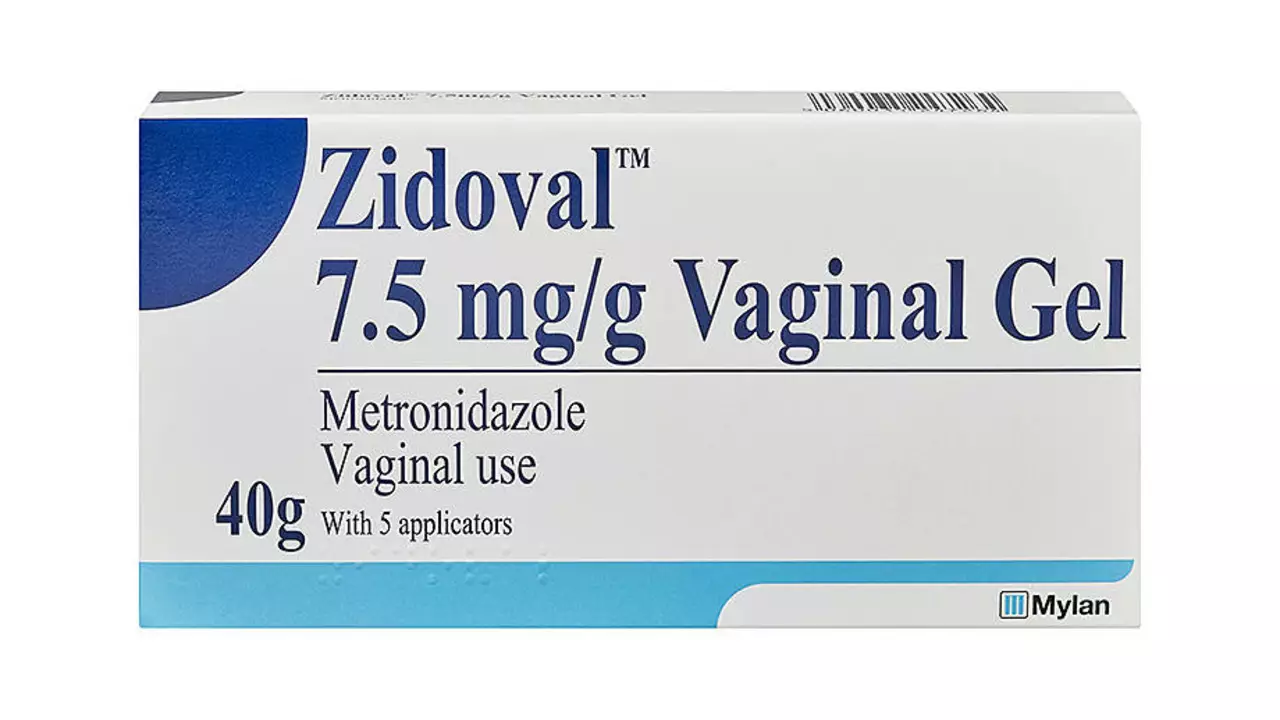Understanding Bacterial Vaginosis and Its Causes
Bacterial vaginosis, or BV, is a common vaginal infection that affects many women at some point in their lives. It occurs when the natural balance of good and bad bacteria in the vagina is disrupted, leading to an overgrowth of harmful bacteria. This imbalance can be caused by various factors, including hormonal changes, sexual activity, and the use of certain hygiene products.
Though it's not considered a sexually transmitted infection, having multiple sexual partners or a new partner can increase the risk of developing BV. Other factors that can contribute to the development of bacterial vaginosis include douching, using scented soaps or bubble baths, and wearing tight or non-breathable clothing. Symptoms of BV can include itching, burning, a foul-smelling discharge, and discomfort during sex or urination.
It's important to understand that BV is not the same as a yeast infection, which is caused by an overgrowth of a specific type of fungus. While some of the symptoms can be similar, the treatment for bacterial vaginosis is different from that of a yeast infection.
Metronidazole: An Effective Treatment for Bacterial Vaginosis
Metronidazole is an antibiotic medication that has been proven to be highly effective in treating bacterial vaginosis. It works by targeting and killing the harmful bacteria responsible for the infection, allowing the natural balance of good and bad bacteria to be restored in the vagina.
Metronidazole can be prescribed in different forms, including oral tablets, a vaginal gel, or a vaginal cream. The type of metronidazole prescribed and the duration of treatment will depend on the severity of the infection and the patient's medical history. However, it's important that the full course of treatment is completed, even if symptoms improve before the medication is finished, to ensure the infection is completely cleared.
It's also crucial to know that metronidazole should not be consumed with alcohol, as it can cause severe nausea and vomiting. Additionally, some women may experience side effects from the medication, such as headache, dizziness, or an upset stomach. If these side effects become severe or persistent, it's important to contact a healthcare provider for advice.
Preventing Recurrence of Bacterial Vaginosis After Metronidazole Treatment
Although metronidazole is an effective treatment for bacterial vaginosis, it's not uncommon for the infection to recur after treatment. To minimize the risk of recurrence, it's important to take certain preventative measures and make lifestyle changes.
First and foremost, it's crucial to maintain a healthy vaginal environment by avoiding douching and using unscented, mild soaps for the genital area. Wearing breathable, cotton underwear and avoiding tight-fitting clothing can also help maintain a healthy environment for the vagina.
Additionally, practicing safe sex by using condoms and limiting the number of sexual partners can help reduce the risk of developing bacterial vaginosis. Finally, maintaining a strong immune system through a healthy diet, regular exercise, and stress management can also contribute to overall vaginal health and reduce the likelihood of recurrent infections.
When to Seek Medical Advice for Bacterial Vaginosis
If you suspect that you may have bacterial vaginosis, it's important to consult with a healthcare provider for a proper diagnosis and treatment plan. This is especially important if you are pregnant, as untreated BV can lead to complications such as preterm birth or low birth weight.
It's also crucial to seek medical advice if your symptoms worsen or do not improve after completing the prescribed course of metronidazole. This could indicate that the infection has not been fully cleared or that there may be another underlying issue contributing to the symptoms.
Additionally, if you experience a recurrence of bacterial vaginosis, it's important to consult with a healthcare provider to discuss potential causes and develop a plan for preventing future infections.
Understanding the Importance of Vaginal Health and Routine Checkups
Maintaining good vaginal health is an important aspect of overall well-being for women. By understanding the causes and risk factors for bacterial vaginosis and taking preventative measures, women can reduce their likelihood of developing this common infection.
In addition to practicing good hygiene and making lifestyle changes, it's essential for women to have regular checkups with their healthcare provider. Routine gynecological exams can help identify any potential issues or infections early on, allowing for prompt treatment and prevention of complications.
By staying proactive about vaginal health and seeking medical advice when necessary, women can take control of their well-being and ensure they're taking the best possible care of their bodies.





Melissa Luisman
Your article ignores the fact that metronidazole resistance is rising!
Akhil Khanna
Hey everyone, glad to see a solid write‑up on BV and metronidazole 😊.
First off, it’s worth noting that the vaginal microbiome is incredibly diverse across different cultures and diets.
Studies from South Asia have shown that women who use fermented foods regularly often have a more resilient Lactobacillus population.
That said, the article could have mentioned the role of probiotic supplements after antibiotic therapy, which many clinicians now recommend.
Also, while the piece warns against alcohol, it forgets to stress that even small amounts of ethanol in mouthwash can trigger a reaction for some people.
A quick tip: drinking plenty of water helps flush out metabolites of metronidazole faster, reducing nausea.
On the flip side, be aware that over‑the‑counter douching solutions are not a cure and can actually worsen the balance – a fact that many people still defiantly ignore.
If you’re dealing with recurring BV, consider a course of oral metronidazole followed by a vaginal probiotic gel for at least two weeks.
Some research suggests that a 5‑day regimen is as effective as the classic 7‑day one, but always check with your provider.
Also, keep an eye on any side effects like headache or dizziness; they’re usually mild but shouldn’t be dismissed.
For those who are pregnant, the CDC recommends metronidazole only after the first trimester unless the infection is severe.
Remember that stress can impact immune function, so practices like yoga or meditation can indirectly help keep BV at bay.
Lastly, don’t forget regular gyn check‑ups; early detection can save you a lot of hassle later.
If you ever feel unsure, a quick chat with a pharmacist can clear up dosing questions without the need for an extra appointment.
Stay healthy, stay informed, and let’s keep supporting each other with reliable info! 🌟
Zac James
I appreciate the thorough overview, especially the focus on lifestyle changes.
In many cultures, using breathable cotton underwear is already a norm, which helps reduce recurrence.
However, some communities still rely on traditional herbal washes, and it's important to address their safety.
Encouraging open dialogue between patients and providers can bridge these gaps.
Overall, the guide is a useful resource for anyone looking to understand BV better.
Arthur Verdier
Oh sure, just take a pill, ignore all the pharma conspiracies, and your vagina will be flawless forever.
Breanna Mitchell
Great post! It's empowering to see clear guidance on keeping our vaginal health in check.
Remember, consistency with the treatment and self‑care habits makes all the difference.
You’ve got this!